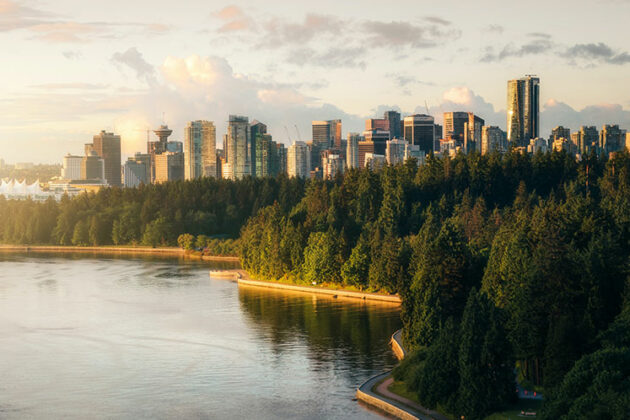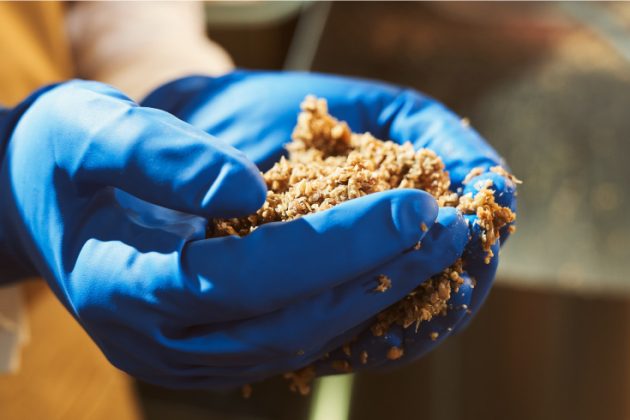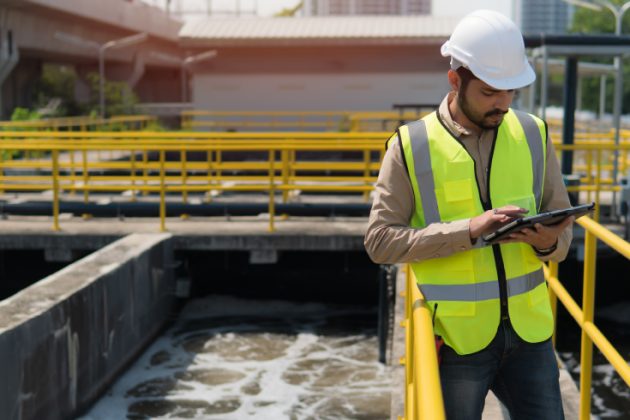By Andrea De Paoli
Affiliation
Interest in the circular economy is growing – and it’s not hard to see why. The limits and inefficiencies of our linear economic system, where resources are extracted to make products that are used for a short period and then thrown away, are becoming more apparent every day. Resources are becoming scarcer and harder to retrieve, and waste is continuing to grow.
The circular economy offers a sustainable alternative to this take-make-waste linear economic model. It operates within planetary boundaries and focuses on keeping materials in circulation (and out of the landfill). While businesses have primarily been the focus of circular economy initiatives, cities also recognize the value a circular economy can bring.
For the City of Vancouver, the circular economy offers a solution to the growing problem of waste, while also offering an opportunity to generate economic growth, increase the number of local green jobs, encourage innovation and contribute to the city’s goal to be the greenest city in the world by 2020.
Many Vancouver businesses are also interested in going circular, and are already trying to reduce waste, especially when the efforts help reduce costs and improve their reputation amongst consumers. It’s clear, though, that businesses need support to make the leap, and accelerate the transition. Changes need to be made to product design and consumption habits, and systems and infrastructure need to be in place to make product take-back (for reuse and recycling) a reality.
For these reasons, government policy and action plays a vital role. By creating extended producer responsibility standards, investing in infrastructure and R&D, and facilitating product take-back, governments can address some of the barriers currently impeding the development of the circular economy.
There are promising signs that the BC government is moving in this direction and will continue to drive the shift forward at a provincial level. The City of Vancouver also has a 2020 goal to reduce solid waste going to landfill by over 50% from 2008 levels. To date, the city has banned organic waste from the landfill, expanded the range of recyclable materials and mandated deconstruction and wood waste recycling.
But there is always more that can be done. The Vancouver Economic Commission commissioned a research project to identify local and regional policy gaps and recommendations to develop a circular economy for textiles in Vancouver. The project created a strong network of local fashion and textile businesses dedicated to accelerating the transition to a circular economy and identified ten policy areas where city and provincial governments can begin to take action.
Read the report: Towards a Circular Economy
While it’s true that many resources are becoming scarcer and that scarcity drives commodity prices up, the current commodity downturn demonstrates that scarcity is a relative term – improving technology, political changes and even climate shifts can all affect the resource cycle in unpredictable ways. For that reason, the world cannot wait for the economic conditions to drive these changes forward. We must actively work towards creating the conditions for change.
This project is merely the first step towards creating a circular economy for textiles in Vancouver. While the transition will take time, the VEC is working on developing a path forward.
Andrea De Paoli recently graduated with a Masters of Science in Social Responsibility and Sustainability from Aston University in the United Kingdom. The VEC circular textiles project provided the basis for her dissertation.
 Andrea De Paoli
Andrea De Paoli
Andrea De Paoli is a government relations and sustainability professional with over ten years experience in the private, not-for-profit and academic sectors. She recently graduated with an MSc in Social Responsibility and Sustainability (with Distinction) from Aston Business School in the UK, one of Europe’s top business schools. Her dissertation was commissioned by the Vancouver Economic Commission and focused on the topic of government policy to support the development of a circular economy in the fashion and textile sector in Vancouver.
Andrea is currently working as Government Affairs Coordinator at Teck, Canada’s largest diversified mining company with a globally renowned reputation in sustainability. She has lived and worked in Latin America and is fluent in English, Spanish and French.



